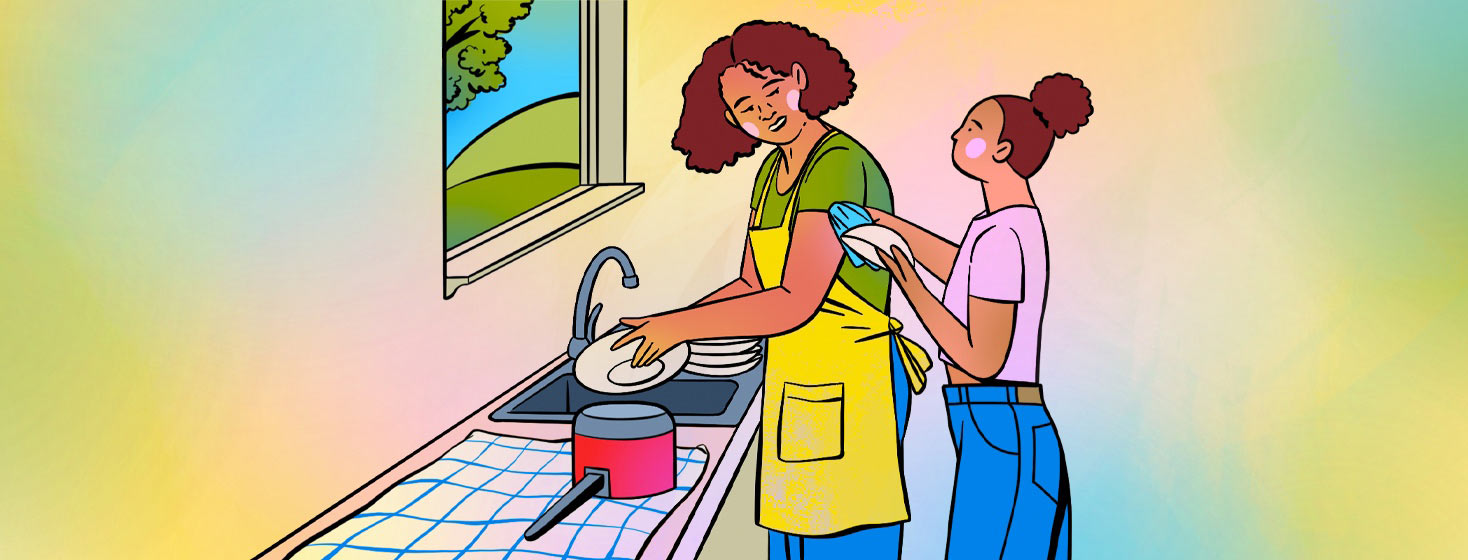What Parents Should Know About HIV and Prevention
Young people – ages 13 to 24 years – account for 1 in 4 new HIV transmissions. And around 3 in 5 youth with HIV do not know they have it, are not currently in treatment, and can unknowingly pass the virus on to others.1
We wanted to hear from our health leaders about young people and HIV prevention. We also asked how parents and caregivers can take care of young persons diagnosed with HIV. We want H-I-V.net to be a safe environment where people can ask questions about anything related to HIV.
Featured Forum
View all responsesWhat do you want young people to know about HIV prevention?
Take control of your own health
"Young adults need to know that there are places they can get free and confidential testing. Websites such as Get Tested | National HIV, STD, and Hepatitis Testing can provide a list of these places. Discussions about testing need to become more commonplace and not so taboo." – Heather Renee
"Young people should know that those on effective HIV treatment cannot transmit the virus. There is still so much misinformation out there. The more we talk about U=U [undetectable equals untransmittable], the more likely it will be for someone to get tested for HIV if they've engaged in risky behaviors." – Shawn
"What I want young people to know about HIV prevention is that they are in control of their sexual health. They have access to so much education and resources to prevent them from ever contracting HIV, STI/STD [sexually transmitted infection or disease], and even unwanted pregnancy. No is a full sentence and answer. Getting tested for HIV doesn't make you dirty. It makes you responsible." – Jahlove
HIV does not discriminate
"I would like to deliver a message from HIV. It came into my life about 23 years ago and completely changed my life. It has no respect for social status, number of followers, or who your parents are. It makes you think you are invincible because you are you, that it only happens to other people, or that it would not happen the first time. Please take care of yourselves. You only have one body." – Daniel
"It's not about what people say to you or how healthy they may seem. HIV can come into your life from even the most trusted people around you. I was exposed to it by someone I was in a relationship with for 8 years. It's important to be knowledgeable and make safe choices." – Robert B.
"Do not make short-term decisions that may have the potential to have long-term effects. Get tested often, protect yourself, and require future partners to have healthy testing practices. " – Ze
What advice do you have for a parent/caregiver of a young person living with HIV?
Knowledge is power
"I would want parents to know that it is important to educate their children on what they are living with and not hide what that is. Help them to understand that they can live a full life with HIV, have children, and be in relationships. Be honest with them and talk to them about how many people have been living with HIV for over 20 years. Be transparent when talking to them." – Dee
"Parents and/or caregivers of children living with HIV should consider talking to their children about what exactly is going on in their body. They should also consider that many of these children were born with HIV and they should not judge or hold that against them." – Steven
"One of the most important things is to be properly educated and to educate your child as they grow up. I believe it is important for them to be knowledgeable about their health condition... and monitor their child’s adherence to their medications. Furthermore, it is important to focus on all components of a child’s health. This includes their emotional and social health in addition to their medical/physical health." – Heather Renee
"Parent and caregivers should know that children will need additional resources to manage the stigma, symptoms, and questions they have about HIV. Having support in place, not only for your child but support for yourself, is important. Unconditional love, and support was the best thing my family provided me with. Find a doctor that your child likes, and ask every single question that both of you may have!" - Ze
Walk alongside young people
"As parents of a child living with HIV, please remember that although most of the time there is a smile on your child's face, there may be stress, anxiety, and depression underneath. Do your best to remember that although most things don't change with a positive diagnosis, it is a life-altering change. Know that dreams and goals can still be reached and attained." – Daniel
"Patience. I was 11 when I tested positive for HIV. The best thing my parents did was find a knowledgeable doctor and let me process things in my own way. It took time, but I got comfortable in my own skin again." – Shawn
"Young people, and everyone, should know that HIV is not a death wish. Young people can live long healthy lives despite having HIV. Times will not always be easy, but lean into those who support and love you in those times. Among the most important is to know that you are worthy, strong, and should always love yourself first!" - Ze
Still looking for more resources geared toward parents/caregivers? Want to contribute as a parent/caregiver with additional advice? Click on the button below!

Join the conversation